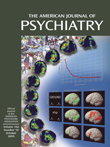Psychosis Associated With Modafinil and Shift Work
Ms. A was a 38-year-old research volunteer who developed mood and psychotic symptoms while taking modafinil as part of a double-blind inpatient laboratory study that was approved by an institutional review board. The purpose of the 23-day study was to examine the effects of modafinil on sleep, cognitive performance, and mood during simulated shift work. Ms. A received a single oral dose of modafinil (0 mg, 200 mg, or 400 mg) 1 hour after waking in 3-day blocks, and each dosing condition was separated by a day during which placebo was administered. Ms. A was studied under two shift conditions: day and night. The shifts alternated three times during the study.Ms. A had no known history of any psychiatric disorder, and a medical and psychiatric evaluation produced unremarkable results. She was without complaints until day 19 of the study, when she reported anxiety about her family’s well-being. It should be noted that Ms. A had received modafinil (400 mg) on days 17–19; her sleep was progressively disrupted over this period. On day 20, Ms. A began to focus increasingly on her children’s well-being and expressed guilt about being an inadequate parent.On day 21, she became markedly disorganized and was internally preoccupied, mumbling prayers and gesturing in a bizarre manner. She did not respond coherently to questioning and was transferred to the psychiatric emergency service. Her psychotic symptoms resolved spontaneously over 24 hours, and she was discharged. Over the next 2 days, she became increasingly depressed and was admitted to a psychiatric hospital. She was treated with risperidone and paroxetine and was discharged after 1 week.
References
Information & Authors
Information
Published In
History
Authors
Metrics & Citations
Metrics
Citations
Export Citations
If you have the appropriate software installed, you can download article citation data to the citation manager of your choice. Simply select your manager software from the list below and click Download.
For more information or tips please see 'Downloading to a citation manager' in the Help menu.
View Options
View options
PDF/EPUB
View PDF/EPUBGet Access
Login options
Already a subscriber? Access your subscription through your login credentials or your institution for full access to this article.
Personal login Institutional Login Open Athens loginNot a subscriber?
PsychiatryOnline subscription options offer access to the DSM-5-TR® library, books, journals, CME, and patient resources. This all-in-one virtual library provides psychiatrists and mental health professionals with key resources for diagnosis, treatment, research, and professional development.
Need more help? PsychiatryOnline Customer Service may be reached by emailing [email protected] or by calling 800-368-5777 (in the U.S.) or 703-907-7322 (outside the U.S.).

